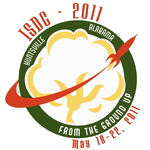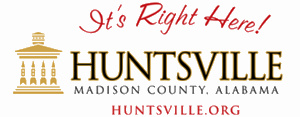CALL FOR SPEAKERS, PRESENTATIONS AND PAPERS
Call for Papers is Now Closed. Thank your for your interest.
The due date has been extended to April 1, 2011. If you are interested in
presenting and speaking, please submit your abstract soon. Abstract will be reviewed
on first-come, first-served basis until the track is filled or until April 1. The abstract review
has been started for the abstracts that were submitted by the original due dates.
All future abstracts will be reviewed based on the date it was received. A formal conference paper is optional;
however, any formal paper received will be published in the conference proceeding
coming out later this year.
The following tracks are closed: Education, History and Outreach; and Technology;
| Important Dates at a Glance | |
|---|---|
| Abstract Submission - EXTENDED | April 1, 2011 |
| Author Notification | Staggered - Starting January 17, 2011 |
| Paper Submission (optional) | May 18, 2011 |
| Presentation Submission (Directions to be Provided by May 1. Presentations should be emailed or uploaded to ISDC 2011.) | May 18, 2011 |
Overview of Topics
ISDC covers several broad areas of study related to building a spacefaring civilization, including transportation to and through space, technology needed to live and work in space, and Earth-based activities to advocate for or educate others about space development. The overall theme for ISDC 2011 is "From the Ground Up," emphasizing the tools, resources, and social activities that must be accomplished to make a spacefaring civilization a reality. Authors are encouraged not just to describe an ideal "future state," but to think about the technical, economic, or advocacy steps that must be accomplished to achieve a specific goal.
Track Descriptions
Presentation/paper topics can include: NASA's proposed heavy-lift Space Launch System, new launch or current rocket-powered vehicles, crewed spacecraft, and in-space propulsion system. This includes government operated (both U.S. and International), private and commerical launch systems and spacecraft, and personal spaceflight.
Presentation/paper topics can include: Operationally Responsive Space (ORS), dual-use technologies, civil and military space synergy, space situational awareness, space traffic control, planetary defense, orbital debris, and other subjects bearing on armed services in space.
Presentation/paper topics can include: construction, applications, materials, and technologies that improve space-based solar power.
Presentation/paper topics can include: space settlement design, technologies for surviving on Moon/Mars, future settlement activities, etc.
Presentation/paper topics can include: planetary science, science activities that can be performed on Moon/Mars/other space settlements, and science activities that could benefit human settlement, life on Earth and greater understanding of the universe.
Presentation/paper topics can include: the politics of NASA/space industry, space law, private property in space, methods of political persuasion, political strategy, and legislative/political activity updates. This includes both U.S. and International policy.
Presentation/paper topics can include: biotechnology and space biology synergy, cellular behavior in space, long term physiological and psychological effects of space travel or zero-G, and benefits of space based biotech and biology research on Earth.
Presentation/paper topics can include: new technologies that advance human space activities, including nanotechnology, robotics, remote sensing, artificial intelligence, and asteroid capture. Technology used in planetary defense can be submitted under technology or military space.
Presentation/paper topics can include: educational/outreach methods, educational activities for students, outreach programs, and competitions. Topics on Google Lunar X-Prize, Centennial Challenges and other prizes are included here.
Presentation/paper topics can include: "game changing" technologies related to human activities in space, including space elevators, "zero point" energy, faster-than-light travel, exotic propellants, terraforming, and other high-end technological advances.
Presentation/paper topics can include: business and investment plans, business case histories, business/economic trends in space, commercial space ventures, and related topics.
Presentation/paper topics can include: space history, Huntsville/von Braun team history, space history books, and others related discussions
Submission Guidelines / Due Dates
Participants must submit an abstract of no more than 300 words to no later than April 1, 2011. Notification of acceptance will starts soon for abstracts that were submitted by the original due dates. If you have submitted your abstract, please stay tuned. All future abstracts will be reviewed based on the date it was received.
While ISDC 2011 will not enforce a "no paper, no podium" rule, authors
are strongly encouraged to submit papers for a proceedings document that
will be published after the conference. Papers should be at least 1,500
words, written in AIAA format
(http://www.aiaa.org/pdf/home/Author_Kit_09.pdf),
published in Microsoft Word (.doc or .docx) or Adobe Portable Document Format (.pdf). Your
track chair will coordinate with you on the paper submission if you choose this option. Paper submission
date is May 18, 2011.
Authors should submit their presentations to the track chair upon on-site
conference registration, or earlier if possible. Presentations should be
in PowerPoint (.ppt, .pptx) format or PDF with all fonts, images and videos attached.
Poster Session
We will have "poster session" event at ISDC 2011, wherein multiple authors would be in a single venue to present their paper with a single 2 feet X 3 feet (appoximately 61 cm x 91 cm) poster on an easel. Individuals participating in the poster session would need to provide a 15 to 30 minute summary of their topic and findings. If you are interested, please submit your abstract as directed in above, and indicate in the email or abstract that your are submitting for a poster session.





















































